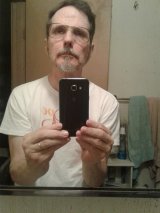Analysis of Objects in the Mirror
"The objects in the mirror
Are closer than they appear"
Another way for me to say
Mirages disappear.
Believe not all you hear.
"There's more than meets the eye"
And certainly that's why
Before you leap into the deep
Lake you must really try;
Be careful when up high!
Remember "all that glitters" might
Just not be gold but just pyrite.
Don't judge that book before you look
Inside to see what he did write
To mesmerize your mind tonight.
| Scheme | XAXAX BBXBB CCXCC |
|---|---|
| Poetic Form | Tetractys (20%) |
| Metre | 0100010 1101101 01011111 01001 011111 111101 010011 01110101 111101 110111 01011101 11111110 11110111 01111111 1101101 |
| Closest metre | Iambic tetrameter |
| Characters | 439 |
| Words | 87 |
| Sentences | 5 |
| Stanzas | 3 |
| Stanza Lengths | 5, 5, 5 |
| Lines Amount | 15 |
| Letters per line (avg) | 23 |
| Words per line (avg) | 5 |
| Letters per stanza (avg) | 114 |
| Words per stanza (avg) | 27 |
About this poem
Don't believe everything you read or hear.
Font size:
Written on October 02, 2023
Submitted by stevec.24118 on October 02, 2023
Modified by stevec.24118 on October 02, 2023
- 27 sec read
- 3 Views
Citation
Use the citation below to add this poem analysis to your bibliography:
Style:MLAChicagoAPA
"Objects in the Mirror" Poetry.com. STANDS4 LLC, 2024. Web. 19 May 2024. <https://www.poetry.com/poem-analysis/170001/objects-in-the-mirror>.


Discuss this Steve Cochrane poem analysis with the community:
Report Comment
We're doing our best to make sure our content is useful, accurate and safe.
If by any chance you spot an inappropriate comment while navigating through our website please use this form to let us know, and we'll take care of it shortly.
Attachment
You need to be logged in to favorite.
Log In